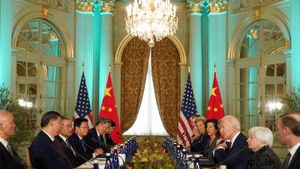President-elect Donald Trump is reportedly preparing significant changes to the United States military structure through the establishment of what he calls a "warrior board." This board, according to the draft executive order obtained by The Wall Street Journal, is intended to expedite the evaluation and possible removal of high-ranking military officers, particularly those labeled as "woke" or unfit for leadership roles.
The draft executive order aims to create this board comprised of retired generals and noncommissioned officers with the authority to review the conduct and leadership qualities of three- and four-star generals and admirals. If approved, the board would forward its recommendations to the White House, which could lead to the immediate retirement of those deemed lacking in requisite leadership skills within 30 days.
Trump has expressed frustrations toward military officials who, he believes, failed to align with his administration's objectives, particularly surrounding the controversial withdrawal from Afghanistan and issues pertaining to military diversity initiatives. His fierce criticism has focused on figures like former Joint Chiefs of Staff Chairman General Mark Milley, whom he accused of treachery for maintaining communication with Chinese officials during the final days of his presidency.
“This is an act so egregious...the punishment would have been DEATH!” Trump declared about Milley's actions, illustrating the intensity of his sentiments toward perceived disloyalty within the military ranks. Such fervor has fueled speculation around the formation of the warrior board, which critics fear may instigate a purge of military leadership based on political ideologies rather than merit.
The drive to install the warrior board appears rooted in Trump's broader vow to overhaul the Defense Department. His administration has often positioned itself against what they term "woke" policies, which they argue detract from military professionalism and readiness. A spokesperson from Trump's transition team hinted at the board's mission: to reinforce military excellence and strategic readiness.
Critics, including former military officials and those within the current administration, have voiced concerns about the potential for politicization of military promotions and assessments. Eric Carpenter, an ex-Army lawyer, stated, “If you are looking to fire officers who might say no because of the law or their ethics, you set up a system with completely arbitrary standards to fire anyone you want.” Such critiques suggest the board could create an environment of fear among military leaders, discouraging independent thinking or dissent.
Trump's campaign rhetoric suggested he would act swiftly against anyone he perceives as insubordinate, pledging to eliminate staff who did not support his vision of military governance. The proposed board provides him with the framework to fulfill this promise, removing the need to navigate traditional Pentagon promotion protocols.
While Trump holds the authority to dismiss any military officer, the board’s existence signifies his intention to streamline this process—potentially leading to systemic changes within military leadership and culture.
Historical parallels have emerged, with some comparing the proposed warrior board to General George C. Marshall's "plucking board" established during World War II, which aimed to promote genuinely capable officers rather than political allies. Unlike Marshall's initiative, which sought to improve military efficacy by elevaking promising talent, Trump’s board appears more focused on conformity to his ideological standards.
Further complicate the situation are the reactions from various factions within Washington. Some conservatives, see this proposal as necessary reform, citing the need to remove leaders who don’t align with Trump’s America First agenda. Meanwhile, opposition voices warn against the erosion of military independence and the traditional apolitical stance expected from military leaders.
Regardless of the ultimate outcome, the warrior board proposal has intensified debates about the role of politics within military leadership. Will this new initiative serve to uphold military standards, or will it inject partisanship where neutrality has traditionally prevailed? Time will tell how such sweeping reforms will impact the U.S. armed forces as Trump's presidency begins.



